Dagstuhl-Seminar 22111
Database Indexing and Query Processing
( 13. Mar – 18. Mar, 2022 )
Permalink
Organisatoren
- Renata Borovica-Gajic (The University of Melbourne, AU)
- Goetz Graefe (Google - Madison, US)
- Allison Lee (Snowflake - San Mateo, US)
- Caetano Sauer (Salesforce - München, DE)
- Pinar Tözün (IT University of Copenhagen, DK)
Kontakt
- Andreas Dolzmann (für wissenschaftliche Fragen)
- Susanne Bach-Bernhard (für administrative Fragen)
Impacts
- Data Pipes : Declarative Control over Data Movement : article in CIDR 2023 - Vogel, Lukas; Ritter, Daniel; Porobic, Danica; Tözün, Pinar; Wang, Tianzheng; Lerner, Alberto - cidrdb.org, 2022. - 10 pp..
- POLAR : Adaptive and Non-invasive Join Order Selection via Plans of Least Resistance - Justen, David; Ritter, Daniel; Lamb, Andrew; Markl, Volker; Lee, Allison; Fraser, Campbell; Tran, Nga; Bodner, Thomas; Haddad, Mhd Yamen; Zeuch, Steffen; Boehm, Matthias - Irvine : VLDB Endowment, Inc., 2024. - 14 pp.
- SPA : Economical and Workload-Driven Indexing for Data Analytics in the Cloud : article in 2023 IEEE 39th International Conference on Data Engineering (ICDE) - Boncz, Peter A.; Chronis, Yannis; Finis, Jan; Halfpap, Stefan; Neumann, Thomas; Zukowski, Marcin; Stolze, Knut; Sauer, Caetano; Nica, Anisoara; Leis, Viktor - Los Alamitos : IEEE, 2024. - pp. 3740-3746.
Programm
The Dagstuhl Seminar 22111 on “Database indexing and query processing” assembled researchers from industry and academia for the fourth time to discuss robustness issues in database query performance. The seminar gathered researchers around the world working on indexing, storage, plan generation and plan execution in database query processing, and in cloud-based massively parallel systems with the purpose to address the open research challenges with respect to the robustness of database management systems. Delivering robust query performance is well known to be a difficult problem for database management systems. All experienced DBAs and database users are familiar with sudden disruptions in data centers due to poor performance of queries that have performed perfectly well in the past. The goal of the seminar was to discuss the current state-of-the-art, to identify specific research opportunities in order to improve the state-of-affairs in query processing, and to develop new approaches or even solutions for these opportunities, building upon successes of the past Dagstuhl Seminars [1, 2, 3]. The organizers (Renata Borovica-Gajic, Goetz Graefe, Allison Lee, Caetano Sauer, and Pinar Tözün) this time attempted to have a focused subset of topics that the participants discussed and analyzed in more depth. From the proposed topics on algorithm choices, join sequences, learned and lightweight indexes, database utilities, modern storage hardware, and benchmarking for robust query processing, the participants formed three work groups: i) one discussing indexing for data warehousing, ii) one discussing robust query operators, and iii) one discussing robust storage architectures. Upon choosing the topics of interest, the organizers then guided the participants to approach the topic through a set of steps: by first considering related work in the area; then introducing metrics and tests that will be used for testing the validity and robustness of the solution; after metrics, the focus was on proposing specific mechanisms for the proposed approaches; and finally the last step focused on the implementation policies. At the end of the week, each group presented their progress with the hope to continue their work towards a research publication. The reports of work groups are presented next.
References
- Renata Borovica-Gajic, Stratos Idreos, Anastasia Ailamaki, Marcin Zukowski, and Campbell Fraser. Smooth scan: Statistics-oblivious access paths. In Johannes Gehrke, Wolfgang Lehner, Kyuseok Shim, Sang Kyun Cha, and Guy M. Lohman, editors, ICDE, pages 315–326. IEEE Computer Society, 2015.
- Renata Borovica-Gajic, Stratos Idreos, Anastasia Ailamaki, Marcin Zukowski, and Campbell Fraser. Smooth scan: robust access path selection without cardinality estimation. VLDB J., 27(4):521–545, 2018.
- Martin L. Kersten, Alfons Kemper, Volker Markl, Anisoara Nica, Meikel Poess, and Kai-Uwe Sattler. Tractor pulling on data warehouses. In Goetz Graefe and Kenneth Salem, editors, DBTest, page 7. ACM, 2011.
 Renata Borovica-Gajic, Goetz Graefe, Allison Lee, Caetano Sauer, and Pinar Tözün
Renata Borovica-Gajic, Goetz Graefe, Allison Lee, Caetano Sauer, and Pinar Tözün
Although planned as a self-contained event not requiring familiarity with its predecessors, this Dagstuhl Seminar is part of a successful Dagstuhl Seminar series and thus continues and complements the earlier Dagstuhl Seminars 10381, 12321, and 17222, where participants discussed, researched, and wrote about various aspects of robust performance in database query processing including indexing, database access, query optimization, and query execution.
In 2022, we will go beyond smooth scans and join algorithms. We will renew the series’ focus on robust techniques for operation sequences, in particular join sequences, on robust query processing over column storage, and on streams and updates, e.g., write-optimized index formats. More recent topics include emerging storage devices as well as learned techniques for indexing, query optimization, and query execution. All of these techniques affect not only efficiency and scalability but also robustness of query performance. While most prior research focuses on efficiency and scalability, we will review prior techniques and their effect on robustness of performance and thus on predictability and user satisfaction.
During the seminar, we will spend some time educating each other and then pick specific hard problems that we can hope to solve during an intense week of design discussions and drafting possible publications to advance the field of database query processing and specifically robust performance in database services. Attendees should be prepared to contribute to discussions and new collaborative designs.
 Renata Borovica-Gajic, Goetz Graefe, Allison Lee, Caetano Sauer, and Pinar Tözün
Renata Borovica-Gajic, Goetz Graefe, Allison Lee, Caetano Sauer, and Pinar Tözün
- Carsten Binnig (TU Darmstadt, DE) [dblp]
- Thomas Bodner (Hasso-Plattner-Institut, Universität Potsdam, DE)
- Peter A. Boncz (CWI - Amsterdam, NL) [dblp]
- Yannis Chronis (University of Wisconsin-Madison, US) [dblp]
- Jan Finis (Salesforce - München, DE)
- Campbell Fraser (Google - Mountain View, US) [dblp]
- Mhd Yamen Haddad (Ecole Polytechnique - Palaiseau, FR)
- Stefan Halfpap (Hasso-Plattner-Institut, Universität Potsdam, DE)
- Thomas Heinis (Imperial College London, GB) [dblp]
- David Justen (Hasso-Plattner-Institut, Universität Potsdam, DE) [dblp]
- Andrew Lamb (InfluxData - Boston, US) [dblp]
- Allison Lee (Snowflake - San Mateo, US) [dblp]
- Sangjin Lee (Hanyang University - Seoul, KR) [dblp]
- Viktor Leis (Universität Erlangen-Nürnberg, DE) [dblp]
- Alberto Lerner (University of Fribourg, CH) [dblp]
- Thomas Neumann (TU München, DE) [dblp]
- Anisoara Nica (SAP SE - Waterloo, CA) [dblp]
- Danica Porobic (Oracle Switzerland - Zürich, CH) [dblp]
- Daniel Ritter (Hasso-Plattner-Institut, Universität Potsdam, DE) [dblp]
- Bart Samwel (Databricks - Amsterdam, NL) [dblp]
- Caetano Sauer (Salesforce - München, DE) [dblp]
- Knut Stolze (IBM Deutschland - Böblingen, DE) [dblp]
- Pinar Tözün (IT University of Copenhagen, DK) [dblp]
- Nga Tran (InfluxData - Boston, US) [dblp]
- Lukas Vogel (TU München, DE)
- Tianzheng Wang (Simon Fraser University - Burnaby, CA) [dblp]
- Marcin Zukowski (Snowflake - San Mateo, US) [dblp]
Verwandte Seminare
- Dagstuhl-Seminar 10381: Robust Query Processing (2010-09-19 - 2010-09-24) (Details)
- Dagstuhl-Seminar 12321: Robust Query Processing (2012-08-05 - 2012-08-10) (Details)
- Dagstuhl-Seminar 17222: Robust Performance in Database Query Processing (2017-05-28 - 2017-06-02) (Details)
- Dagstuhl-Seminar 24101: Robust Query Processing in the Cloud (2024-03-03 - 2024-03-08) (Details)
- Dagstuhl-Seminar 26311: Robust Database Queries and Stream Processing: From Ingest to Insights (2026-07-26 - 2026-07-31) (Details)
Klassifikation
- Databases
Schlagworte
- database
- query
- optimization
- execution
- hardware
- performance

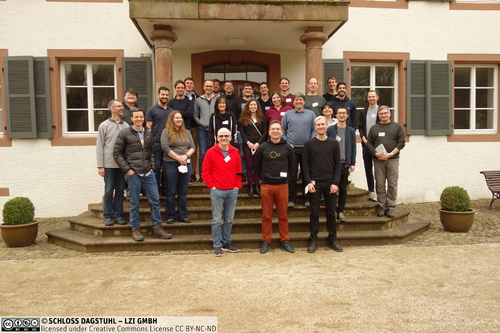
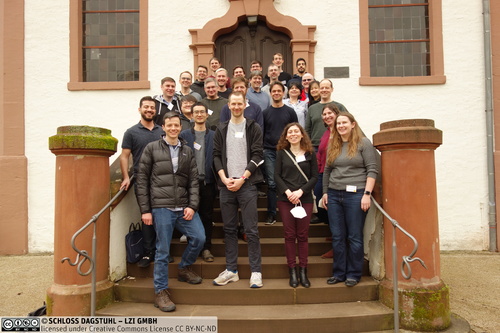
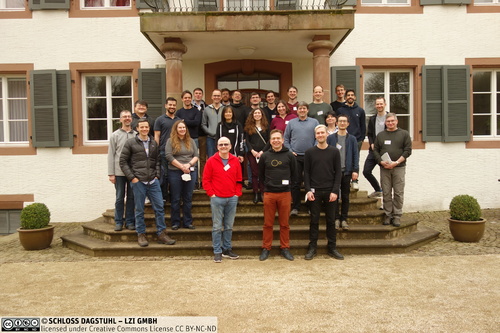
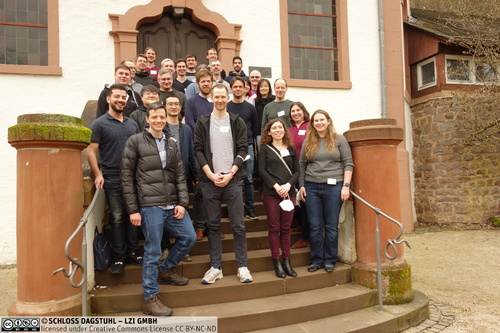
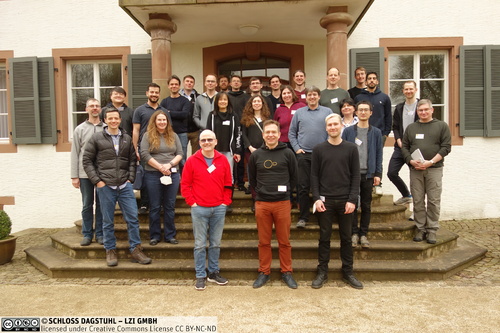
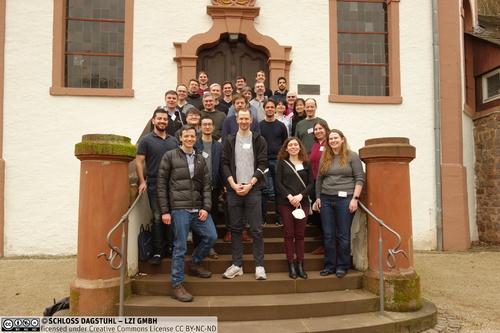
 Creative Commons BY 4.0
Creative Commons BY 4.0
